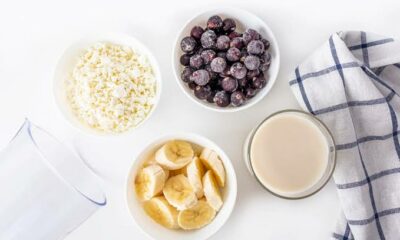Health
5 Ways to Deal with Hormonal Acne

Hormonal acne can be frustrating, especially when it pops up right before an important event or refuses to clear up despite your best efforts.
Most people try to hide it under their glass shield but it doesn’t end well because they still have to show off their face.
If you are amongst those that have been struggling with breakouts that seem to follow a pattern—like appearing before your period or worsening during stressful times—your hormones might be the culprit.
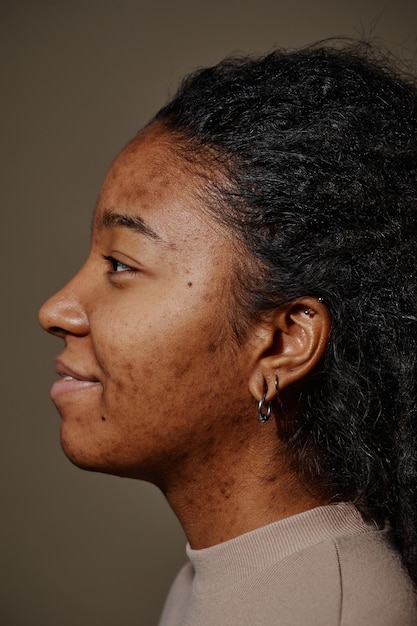
But don’t worry! Managing hormonal acne is possible with the right approach. This is the reason why in this article, I will share with you five effective ways to deal with hormonal acne.
Here are five simple and effective ways to deal with hormonal acne:
1. Balance your diet.
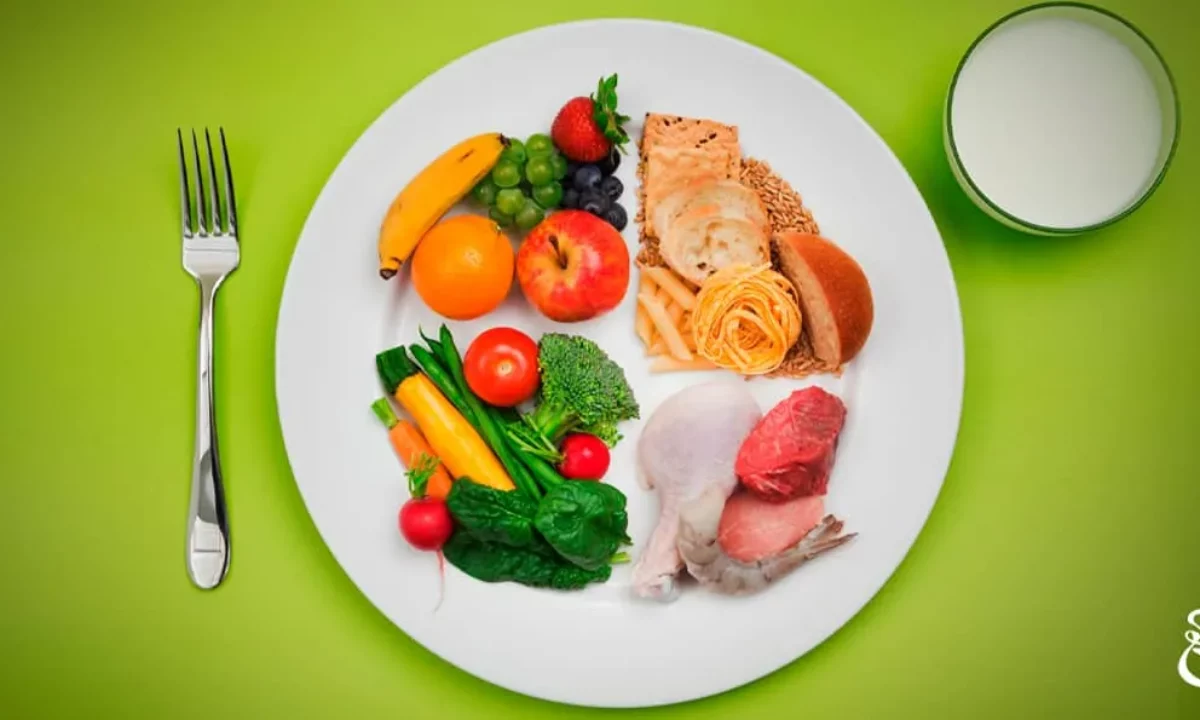
Balance diet
Whatever you consume plays a huge role in your skin’s health. Certain foods can trigger hormonal imbalances that lead to acne.
Try to:
✓ Reduce sugar and processed foods: They can cause insulin spikes and it can lead to increased oil production and clogged pores.
✓ Eat more healthy fats like avocados, nuts, and olive oil: These help regulate hormones.
✓ Incorporate leafy greens and fiber-rich foods: They support gut health, which is closely linked to clear skin.
✓ Drink plenty of water: Hydration helps flush out toxins and keeps your skin glowing.
While diet alone may not cure acne, making healthier choices can reduce inflammation and improve your skin over time.
2. Manage stress levels.

Stress is one of the biggest triggers of hormonal acne. When you’re stressed, your body produces cortisol (the stress hormone), which can increase oil production and lead to breakouts.
To keep stress in check, try these steps:
✓ Practice relaxation techniques like deep breathing, yoga, or meditation.
✓ Get enough sleep: Poor sleep can mess with your hormones and worsen acne.
✓ Take breaks and do activities you enjoy: Whether it’s reading, exercising, or listening to music, find ways to unwind.
✓ Reducing stress doesn’t just help your skin, it also improves your overall well-being.
3. Use the right skincare products.

Sometimes, the reason you’re still facing hormonal acne is because you don’t use the right skincare products.
A good skincare routine can make a big difference in controlling hormonal acne.
If you need the right skincare products, here are a few of them to check out:
✓ Gentle cleansers: Avoid harsh soaps that strip your skin’s natural oils, as this can make acne worse.
✓ Salicylic acid or benzoyl peroxide: These ingredients help clear clogged pores and reduce breakouts.
✓ Retinoids: They promote skin renewal and prevent new pimples from forming.
✓ Oil-free moisturizers: Hydration is key, even if you have acne-prone skin!
Avoid over-washing or using too many harsh products, as this can irritate your skin and cause more breakouts.
4. Consider hormonal treatments.
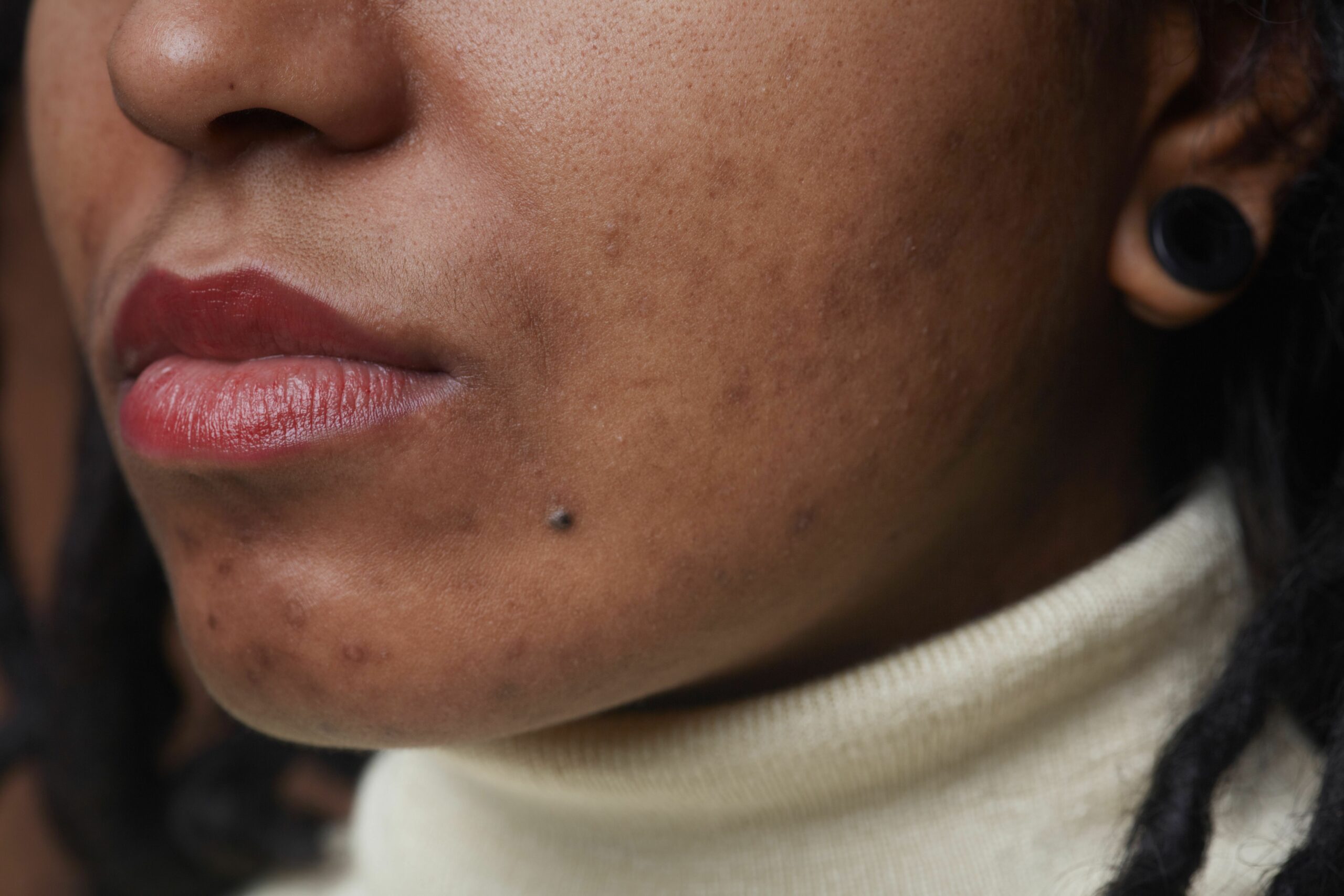
If your acne is persistent, you might need extra help. Some medical treatments that can balance your hormones include:
✓ Birth control pills: These regulate hormones and can reduce acne in some people.
✓ Spironolactone: A medication that helps control hormone-related oil production.
✓ Prescription creams: Dermatologists can recommend stronger treatments if over-the-counter options aren’t working.
Before starting any medication, consult a doctor to find the best option for your skin type and health needs.
5. Be patient and consistent.
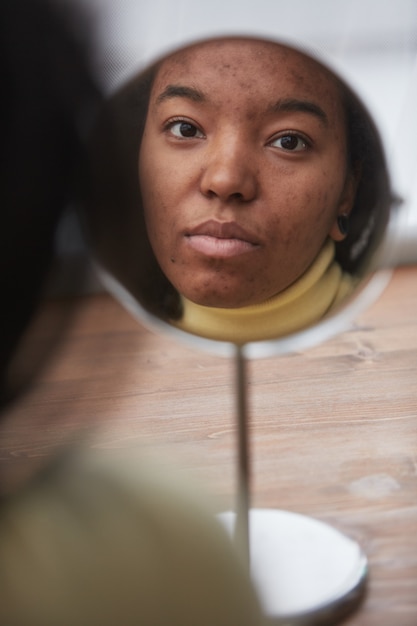
Hormonal acne doesn’t disappear overnight. It can take weeks or even months for treatments to show results.
Stay patient and:
✓ Stick to your routine: Don’t jump from one product to another too quickly.
✓ Avoid picking at pimples: This can cause scarring and make acne worse.
✓ Track your breakouts: Noting when they happen can help you identify triggers and patterns.
As they always say, consistency is the key. Keep up with healthy habits, and you’ll likely see improvements over time.
Conclusion.
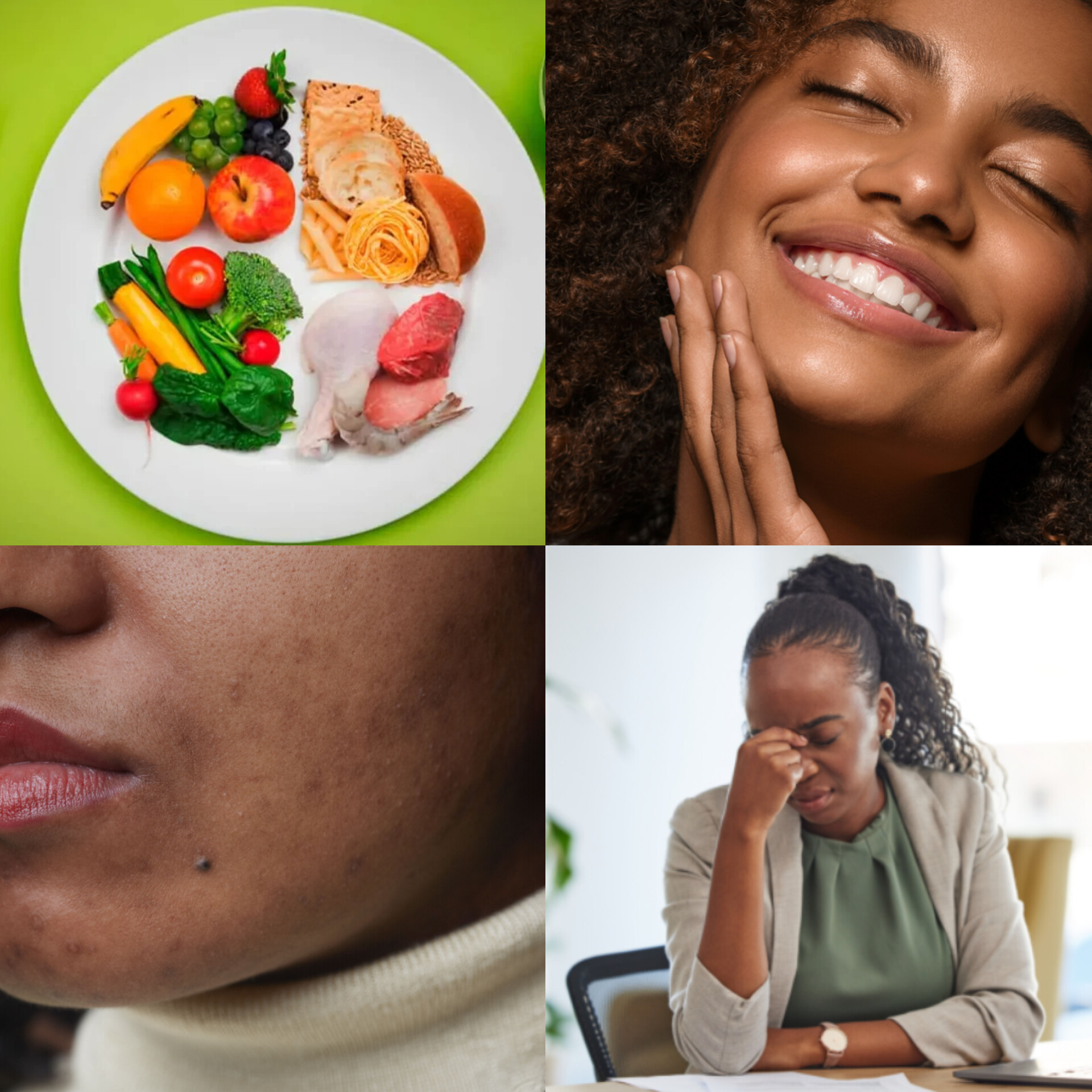
Dealing with hormonal acne can be challenging, but with the right approach, you can keep breakouts under control.
Focus on a balanced diet, stress management, proper skincare, and, if needed, medical treatments.
Most importantly, be kind to yourself—acne is completely normal, and with patience, your skin will improve!
If you found this article helpful, share your thoughts in the comment section.
Read also: Top 5 Nollywood movies on Netflix March 2025
Health
Workout Routines That Support Bones Health

Strong bones depend on more than just calcium or supplements. Research shows that bones respond to physical stress: when muscles and weight-bearing activities challenge the skeleton, bone tissue becomes denser and stronger. To protect skeletal health over the long term, exercise should combine weight-bearing activity, resistance training, and balance work. Together, these exercises address the main risk factors for fractures: low bone density, weak muscles, and poor coordination.

Photo Credit – Google
Weight-bearing activity doesn’t need to be extreme to be effective. Regular brisk walking around neighbourhoods or local parks strengthens hips, legs, and spine, while climbing stairs or light jogging improves lower-body density. Dance classes, including Afrobeat or traditional Nigerian dances, provide varied movement patterns that engage muscles and improve coordination. Starting with 15–20 minutes per session, three to five days a week, and gradually increasing intensity or duration can deliver measurable benefits.

Photo Credit – Google
Resistance training plays a key role in maintaining strong bones. Gradually increasing weight or resistance helps muscles and bones adapt. Exercises such as squats and deadlifts target the hips, thighs, and spine, while lunges and step-ups build strength in the lower body and promote functional movement. Push-ups, pull-ups, and shoulder presses strengthen the upper body and spine. Two to three sessions per week covering all major muscle groups are sufficient. Free weights, resistance bands, or bodyweight exercises can all be effective depending on what equipment is available.

Photo Credit – Google
Balance is equally important because falls are a leading cause of fractures. Single-leg stands and heel-to-toe walking improve stability and coordination, while yoga, Tai Chi, or mobility exercises enhance control and complement other workouts. Integrating balance with strength and weight-bearing exercises provides a complete approach to bone health.
Common mistakes include relying solely on low-impact cardio such as swimming or cycling, which has little effect on bone density, and attempting high-impact exercises without preparation, which can increase injury risk. Effective routines should be planned, progressive, and performed consistently to build resilience safely.

Photo Credit – Google
A sample weekly schedule could include strength-focused exercises on Monday, such as squats or step-ups, deadlifts or hip-hinge movements, and push-ups or shoulder presses. Wednesday could focus on weight-bearing activity and balance through brisk walks, single-leg and heel-to-toe drills, and light dynamic movements. Friday can target functional strength with lunges or carries using household objects, core stability exercises, and stretching or yoga. This cycle can be repeated weekly, increasing load or complexity gradually.
Strong bones require intentional, evidence-based exercise. By combining weight-bearing activity, resistance training, and balance work, Nigerians can maintain bone density, reduce fracture risk, and improve overall skeletal resilience. Starting at your current fitness level, increasing load progressively, and including balance exercises will help protect bones for the long term.
Health
Disordered Eating Vs. Eating Disorder: Experts Explain The Differences And When To Seek Help
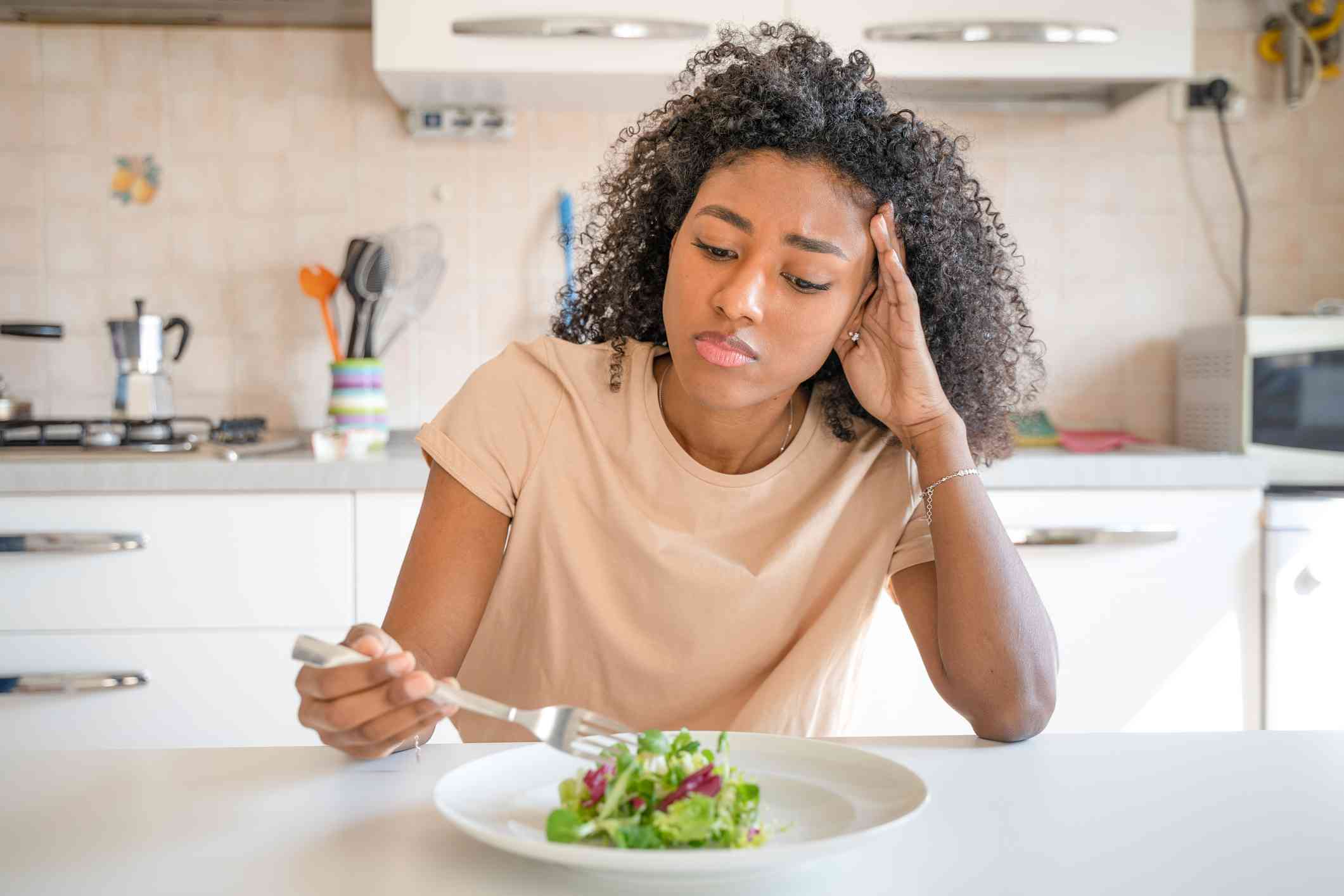
Disordered eating and clinical eating disorders are not interchangeable. Disordered eating refers to irregular or emotionally influenced habits around food: chronic dieting, skipping meals, rigid food rules, occasional binge episodes or persistent preoccupation with calories, weight or body shape. These habits may shift, but when repeated over time they often point to growing vulnerability.
Clinical eating disorders, by contrast, are diagnosed mental-health or medical conditions marked by persistent, patterned behaviours that impair physical health, mental wellbeing or daily functioning. Conditions such as anorexia nervosa, bulimia nervosa, binge‑eating disorder and other specified feeding or eating disorders fall into this category.

Image: Google
Evidence from Nigerian research confirms that disordered eating attitudes and risk for eating disorders are present among young adults and adolescents. In a study of more than 1,050 undergraduates from two higher‑education institutions in Lagos, roughly 16 percent scored positive on the EAT‑26 screening tool for disordered eating attitudes.
At a university in Ile‑Ife, a survey of female undergraduates found that 17.1 percent were classified as at high risk for eating disorders, based on the same screening instrument.
A more recent analysis among female undergraduates in Lagos found a lower prevalence of disordered eating (about 5 percent). Still, the study flagged a strong association between body-image dissatisfaction, body‑mass index (BMI) and disordered eating attitudes.
Adolescents are not exempt: a survey of 13 to 19-year-olds in Ibadan used screening tools to assess disordered eating behaviours and feeding/eating disorders. Results showed that 28.2 percent exhibited disordered eating behaviours, and a significant portion also met screening criteria for feeding/eating disorders.

Image credit: Google
Clinical, clearly diagnosed cases have also been documented. There’s a recorded instance of a 20-year-old undergraduate at a Nigerian university diagnosed with anorexia nervosa showing that what may start as dieting or food anxiety can escalate into serious health and psychiatric risk.
Because disordered eating and eating disorders exist within the Nigerian context, distinguishing between them matters. Persistent preoccupation with food, weight or body shape; regular dieting, bingeing or purging; emotional distress tied to eating; and disruption of everyday life are all red flags. When those signs persist, seeking professional support whether nutritional counselling, psychological therapy or medical care becomes essential.
Health
The Exercise That Keeps You Younger

If you’ve ever met someone in their fifties who moves like they’re still in their twenties, it’s likely they’ve discovered the simple habit that keeps the body from giving in to age: regular movement.

While fitness trends keep changing, one form of exercise has stayed constant in its benefits: strength training. It’s not about building bulky muscles or chasing a perfect body. It’s about keeping your bones strong, your joints stable, and your metabolism from slowing down. After the age of 30, the body naturally begins to lose muscle each year. That’s why everyday tasks, like climbing stairs or carrying groceries, start to feel heavier. Strength training helps reverse that.

Research supports this claim. People who lift weights or engage in resistance exercises have lower risks of diabetes, heart disease, and cognitive decline. But beyond the science, it’s about how it makes you feel. Nigerians juggling work, traffic, and family life know how draining each day can be. Even short sessions of body-weight squats, lunges, or push-ups a few times a week can recharge you better than most expensive wellness fads.

It also boosts your mood. Physical activity releases chemicals that help clear mental fog and lift your energy. It’s your body’s way of proving it still has strength to give.
You don’t need a gym to start. A mat, a pair of dumbbells, or even two water bottles will do. The goal is to stay consistent, to keep your body active enough to stay responsive.
Each push, lift, or stretch is a reminder that staying young isn’t about denying age; it’s about moving through it with strength.
-

 Celebrity Style4 months ago
Celebrity Style4 months agoMercy Aigbe Keeps it Sharp in Ivory Dress
-

 Celebrity Style5 months ago
Celebrity Style5 months agoTwo Ways to Wear a Suit, According to Liquorose
-

 Celebrity Style4 months ago
Celebrity Style4 months agoBella Okagbue Puts a Spin on Feminine Suiting
-

 Fashion5 months ago
Fashion5 months agoBella Okagbue Clean London Look
-

 Fashion4 months ago
Fashion4 months agoTeminikan Experiments with Geometry in a Woven Mini
-

 Music5 months ago
Music5 months agoTiwa Savage Was in New York for Her Album Media Run
-

 Health5 months ago
Health5 months agoWhich Fruits Are Highest in Calcium?
-

 Lagos Fashion Week3 months ago
Lagos Fashion Week3 months agoLagos Fashion Week’s Earthshot Prize Win Highlights a Changing Direction in African Fashion Production
-

 Beauty5 months ago
Beauty5 months agoMust Adapt Beauty Routine for Woman Above 25
-

 Fashion5 months ago
Fashion5 months agoAmina Cocoa Just Made the Two-Piece Too Easy







